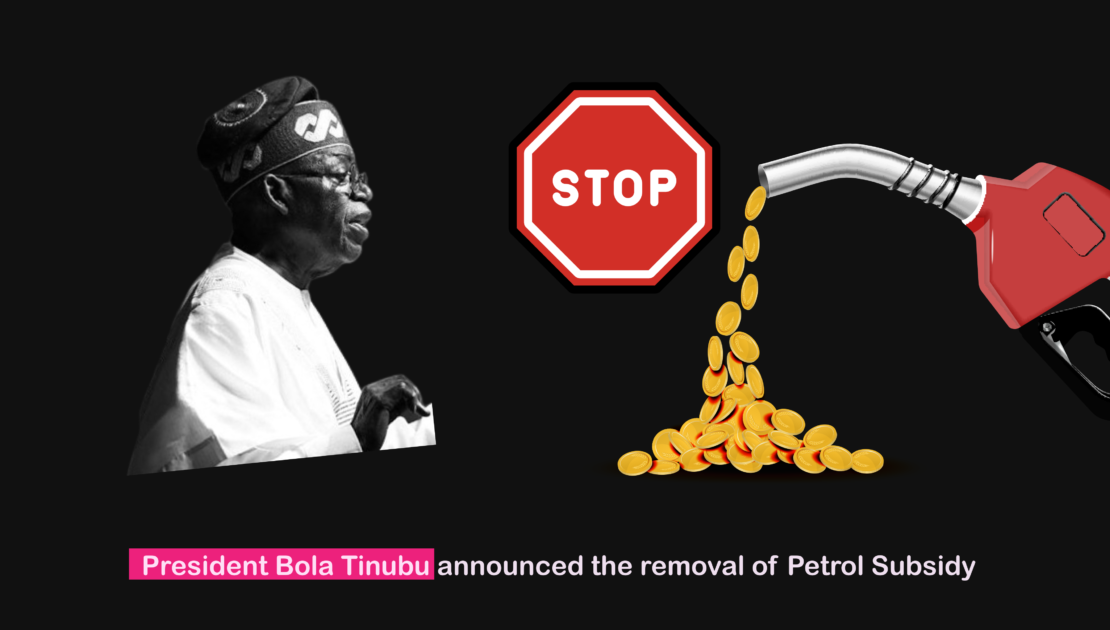Good News in Bad Times: The Petrol Subsidy Removal
Good News in Bad Times: The Petrol Subsidy Removal
-
July 7, 2023
- Posted by: Center for Social Justice

In a bold move aimed at transforming the oil sector and stimulating economic growth, President Bola Ahmed Tinubu announced the long-awaited removal of fuel subsidies during his recent inauguration speech. While the economic benefits of this decision are undeniable, its timing has raised concerns among the public. The removal of subsidies without adequate preparation has resulted in immediate challenges such as fuel queues, hoarding, and artificial scarcity, leading to demand pull and cost push inflation. The subsequent increase in fuel prices will have a cascading effect on the cost of transportation, ultimately impacting the prices of goods and services, particularly food items. With the nation currently facing numerous challenges, including insecurity and the destruction of farmlands, the subsidy removal has the potential to exacerbate the suffering of the masses.
Economically, the removal of fuel subsidies presents a positive development. It will bring about liberation in the oil sector, attract new investors, and foster increased competition and efficiency. As the industry becomes more competitive, market growth will be driven by research, innovation, and improved product quality and services. Over time, this increased competition will lead to lower petroleum product prices and provide consumers with a wider range of choices. It will break the dominance of cartels and cabals, thus benefiting the general public.
However, the major concern lies in the lack of necessary mechanisms and preparations before implementing such a significant decision. The immediate aftermath of the subsidy removal has already highlighted the need for effective management and measures to mitigate its negative impact on the citizens. To navigate this critical transition successfully, President Tinubu must appoint credible individuals to critical positions who possess the skills and expertise to manage the process and handle public reactions. It is essential to develop a change management process that anticipates and addresses public concerns to avoid chaos.
Another area requiring attention is public transportation. In the past, attempts to provide alternative transportation options failed to yield the desired results, as many public vehicles disappeared from the roads. A comprehensive overhaul of the management of public transport companies, including the Abuja Urban Mass Transport Company, is necessary to ensure the provision of reliable and efficient services.
Furthermore, the government should reevaluate the border closure and associated issues before proceeding with the subsidy removal. The previous closure, implemented by former President Muhammadu Buhari, has contributed to the current food insecurity. Combined with the activities of herdsmen and bandits, which have disrupted farming activities and endangered lives, the closure has created significant challenges. Considering the ongoing insecurity and impediments to farming, temporarily opening the borders for food importation could help reduce the cost of foodstuffs and alleviate poverty levels.
Addressing the issues of herdsmen and insecurity is crucial before introducing any additional measures that may contribute to unrest. The government must prioritize creating a secure environment that allows farmers to return to their lands and resume agricultural activities. It is unreasonable to urge citizens to return to farming without ensuring their safety, as recent attacks on farmers have demonstrated.
To ensure sustainable domestic production of fuel, the government should consider privatizing the four refineries. Despite years of turnaround maintenance, these refineries have failed to operate efficiently. Privatization would introduce market forces and competition, complementing the Dangote refinery in Lagos and reducing the risk of monopolistic practices in the sector.
Additionally, granting licenses to more investors for modular refineries and importation would further liberalize the oil market and prevent the emergence of monopolies. This approach would foster healthy competition and allow market forces to dictate pricing and supply.
Implementing the aforementioned mechanisms and establishing guidelines for their operation would facilitate a smooth transition following the subsidy removal, minimizing the pain and suffering endured by the masses. President Tinubu’s administration must act swiftly and decisively to ensure that these measures are put in place before proceeding with the subsidy removal. By doing so, they can demonstrate a genuine commitment to the well-being of Nigerians and effectively navigate the challenges posed by this significant economic transformation.
